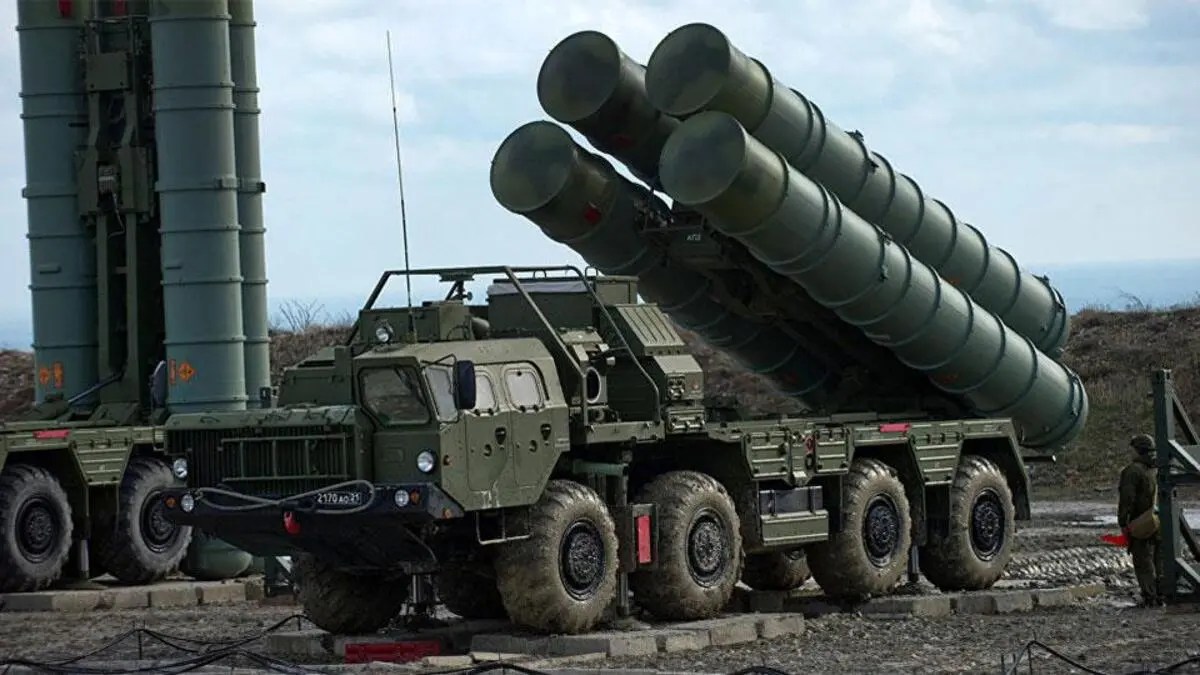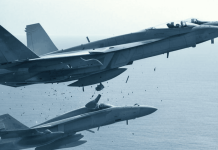INS Tushil, the latest multi-role stealth-guided missile frigate, was commissioned into the Indian Navy in the presence of Defense Minister Rajnath Singh at the Yantar Shipyard in Kaliningrad, Russia, on December 09, 2024.
In his address, Singh described the commissioning as a proud testament to India’s growing maritime strength and a significant milestone in the long-standing friendship between India & Russia, which are bound together by shared values, mutual trust, and special & strategic privileged partnership.
Rajnath Singh termed Russia’s support to India’s vision of ‘Aatmanirbhar Bharat’ as another important example of deep friendship between India and Russia. “Made in India content is continuously increasing in many ships, including INS Tushil. The ship is a big proof of the collaborative prowess of Russian and Indian industries. It exemplifies India’s journey towards technological excellence through jointmanship,” he added.
Rajnath Singh arrived in Russia on December 8 to attend the 21st meeting of the India-Russia Inter-Governmental Commission on Military & Military-Technical Cooperation.
Ahead of his visit, Rajnath Singh wrote on social media site X on December 7: “Tomorrow, 08th December, I shall be reaching Moscow in Russia to attend the 21st meeting of India-Russia Inter-Governmental Commission on Military & Military Technical Cooperation.” It added, “Also, I shall be attending the Commissioning ceremony of Indian Navy’s latest multi-role stealth-guided missile frigate ‘INS Tushil’ during my visit. Looking forward to it.”
Tushil, which means “protector shield” in Sanskrit, is one of four follow-on frigates contracted by India in 2018, with two (INS Tushil and INS Tamala) being constructed by Russia at the Yantar Shipyard in Kaliningrad and the remaining two being built at the Goa Shipyard in India through technology transfer.
These ships are an advanced variant of the Talwar-class frigates already operated by the Indian Navy and are expected to bolster India’s naval fleet amid enhanced security threats.
The commissioning of the frigate is being keenly watched as it comes after frustrating delays of about two years. The ship was previously anticipated to be delivered by the end of 2022. The delay has been attributed to supply chain issues caused by the Coronavirus pandemic and to the Ukraine War that started with the Russian invasion in February 2022.
Alexey Rakhmanov, the Director-General of the United Shipbuilding Corporation of Russia, explained in 2023 that the supply of some equipment, which had to travel long distances to get to Russia, led to delays.
At the time, Rakhmanov added that the setbacks in the frigates’ construction timeline were also caused by payment delays, which were attributed to Western bans on using the worldwide SWIFT interbank system.
Notably, Tushil’s gas turbine engines are supplied from Zorya-Mashproekt in Ukraine. Due to the Russia-Ukraine fallout, India had to procure the engine directly from Ukraine, following which it was redirected to Russia for fitting onto the warships.

Though Indian warships managed to obtain the Ukrainian engines for the ships meant for the Indian Navy, the vessels of the class being constructed for the Russian Navy suffered a blow after the Russia-Ukraine conflict of 2014.
As noted by the Russian state news agency TASS, Ukraine refused to provide engines for the Russian Navy’s ships. This eventually led to Russia altering its plans and putting only three of the six planned frigates into service in the Black Sea Fleet.
The commissioning of INS Tushil comes as India is bolstering its maritime capability to combat the enhanced challenge posed by adversaries China and Pakistan at sea. The second vessel is expected to be handed over to the Indian Navy by 2025.
Moreover, with a delayed INS Tushil finally handed over to India, Rajnath Singh is also expected to raise concerns surrounding delays of other major military equipment.
S-400, Su-30MKI Talks On The Cards
According to reports, Rajnath Singh is expected to raise the delayed delivery of the S-400 air defense systems with Moscow and supply of spares for crucial weapon systems, from Sukhoi-30MKI fighters to T-90S main-battle tanks at the Ienter-Governmental Commission on Military and Military Technical Cooperation (IRIGC-M&MTC) meeting on December 10.
This comes weeks after Indian Chief of the Air Staff (CAS), Air Chief Marshal Amar Preet Singh, confirmed in October that the deliveries of all S-400 air defense systems ordered from Russia would be completed in 2025.
India and Russia inked a deal for five squadrons of S-400 air defense systems in 2018. So far, India has received three squadrons that have been deployed in the border regions near China and Pakistan.
The delivery was earlier anticipated to be completed by 2023-24 but Russia has had to alter its plans to meet the demand of its forces in Ukraine, also referred to as a Force Majeure disruption by some military watchers. Though Russia has assured that the delivery will be completed soon, the delays have upset India’s plans.
For India, the uncertainty around payments has also contributed to the delay in the delivery of S-400. In 2023, approximately US$3 billion in payments were delayed as India attempted to avoid making payments in dollars, given the potential danger of US sanctions under the Countering America’s Adversaries Through Sanctions Act (CAATSA).

In 2022, Bloomberg reported that the Kremlin’s foreign-currency reserves were frozen, and Russia was shut out of the SWIFT network, effectively closing it off from the global financial system. While the two sides tried to settle payments through a Rupee-Rouble arrangement, it failed to solve the crisis due to the huge trade imbalance in Russia’s favor.
The issues are currently being worked on but Rajnath Singh’s push for advancing the deliveries may signal India’s growing impatience with the delays, much like other countries that have experienced similar supply disruptions over the last two years.
Another system that may be included in the talks between the two sides is the Su-30. The two countries are reportedly considering the joint production of aero engines for the Su-30MKI aircraft, which forms the backbone of the Indian Air Force.
Ahead of Rajnath Singh’s visit to Russia, DK Sunil, Chairman and Managing Director of Hindustan Aeronautics Limited (India’s state aircraft manufacturer), visited Russia to finalize a deal for licensed production of 240 AL-31P engines, according to a few reports in Indian media.
The Su-30MKI needs to be upgraded to increase its operational service. Previous reports indicated that Russia had also delayed the delivery of some spare parts for the aircraft due to the Ukraine War.
A Times of India report published recently stated that India wants to press Russia to ensure a timely supply of spares for systems ranging from S-400 missile systems to Su-30MKI to the T-90 tanks.
It cited an unknown source as saying: “Supply of spares has become a major problem for the Indian Armed Forces with the entire Russian defense industry diverted for the ongoing war with Ukraine.”
India has chosen to stick with Russia despite mounting pressure from the West and Ukraine. However, as the Ukraine war continues to drag on and the threat along India’s borders grows, New Delhi seems eager to push Moscow to honor its delivery commitments.
- Contact the author at sakshi.tiwari9555 (at) gmail.com
- Follow EurAsian Times on Google News




